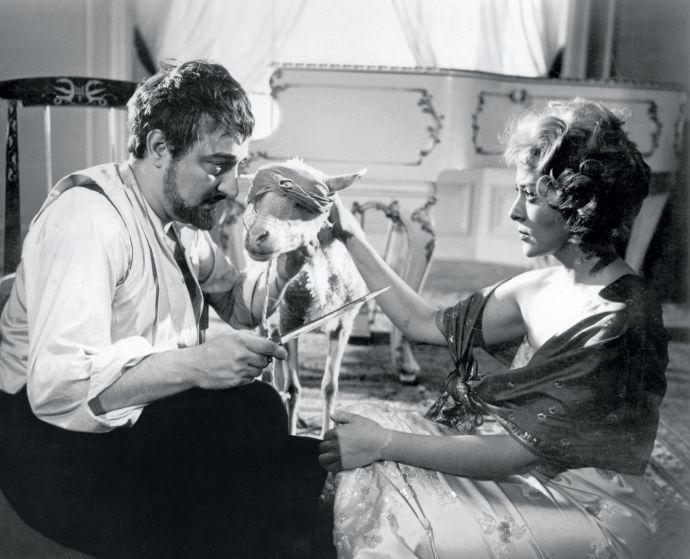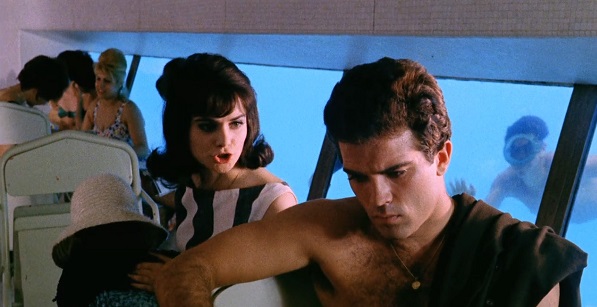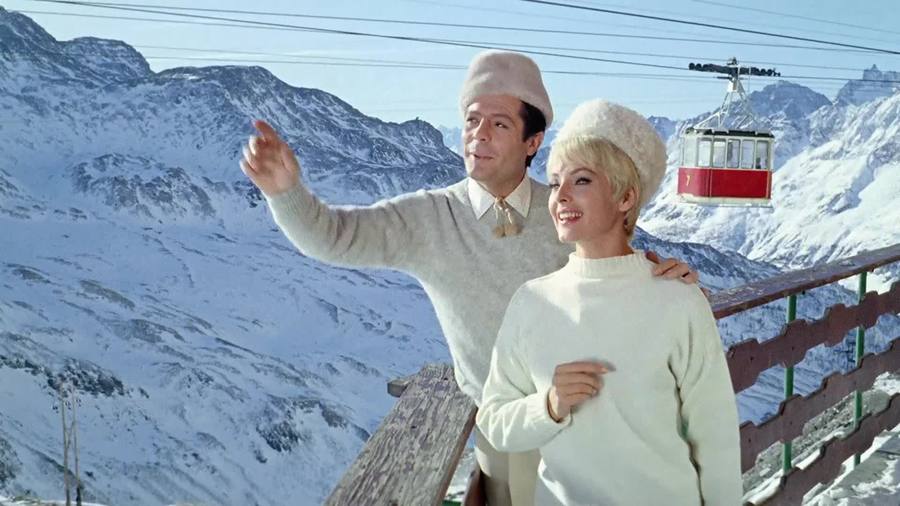During a directorial career that spanned more than six decades, Viareggio-born Mario Monicelli, who would be 100 years old this week, was renowned as one of the masters of Italian comedy. Although he had been making films for many years before, his fiercely acerbic humor first came to international prominence in the late 1950s with pictures such as the heist film pastiche Big Deal on Madonna Street (1958) and WWI satire The Great War (1959).
In this video essay, I focus on the theme of frustrated desire in two Monicelli films from the 1960s: Renzo and Luciana, his contribution to the 1962 anthology film Boccaccio ’70, and the Marcello Mastroianni vehicle Casanova ’70 (1965). Set in Milan and based on Italo Calvino’s 1958 story The Adventure of a Married Couple, Renzo and Luciana tells of two young newlyweds (newcomers Marisa Solinas and Germano Gilioli) who are seemingly unable to find time (and space) to be alone together. Casanova ’70 follows the adventures of Andrea Rossi-Colombotti (Mastroianni), a globetrotting diplomat who embarks on a string of affairs but discovers he is only able to perform romantically when in a perilous situation, even once he has settled down with his sweetheart Gigliola (Virna Lisi). As scholar Jacqueline Reich points out, the latter film “satirizes both the Casanova myth and Mastroianni’s extra-cinematic image.”
On the one hand, we have a low-key, bittersweet, medium-length film with no major stars, on the other, a broad-humored glossy feature with big-name actors. While the reasons behind Renzo and Luciana’s frustrated desire are societal and generally outwith their control, for Andrea the problems are mostly psychological. In both films, Monicelli places great emphasis on the non-verbal and it is these moments—captured in patient, precise compositions—that best evoke the feeling of lovers aching to be together.
Monicelli's Dance of Love from Fandor Keyframe on Vimeo.
In a 1978 interview with Aldo Tassone, Monicelli was asked which comic filmmakers had influenced him. He ran off names such as Mack Sennett, Harry Langdon, Charlie Chaplin, Buster Keaton, Frank Capra and René Clair but it was the last director on the list—Luis Buñuel—that most puzzled his interviewer. “Some people might say that Buñuel is not a comic director,” Monicelli explained, “but he is—very much so. His comedy is extremely precise and surreal but at the same time it’s rooted in everyday reality, linked to obvious things.” He also went on to praise what he saw as Buñuel’s straightforward shooting style. “I like shots that have a casual air to them, shots without artifice.”

If we look closer at the links between Buñuel and Monicelli, it’s clear that they share one thematic preoccupation above all—an interest in the comic consequences of frustrated desire. Buñuel reflected on this subject in his 1982 memoir My Last Breath. “[In my 1961 film The Exterminating Angel] I simply see a group of people who couldn’t do what they wanted to—leave a room. This kind of dilemma, the impossibility of satisfying a simple desire, often occurs in my movies.”
Pasquale Iannone is a film academic and critic. He teaches film at the University of Edinburgh and regularly contributes to Sight & Sound and BBC Radio. His video essay work can be found at www.vimeo.com/piannone.





